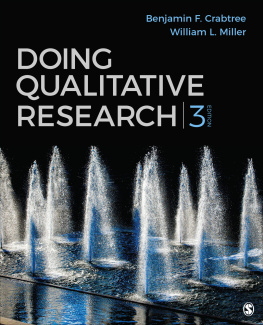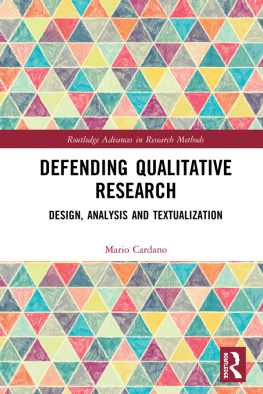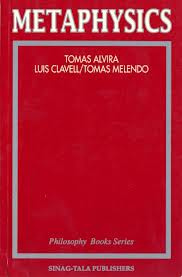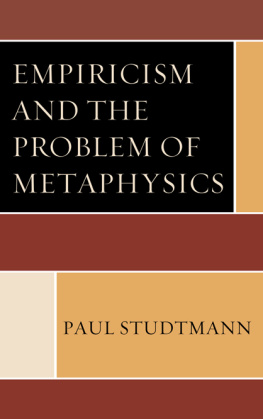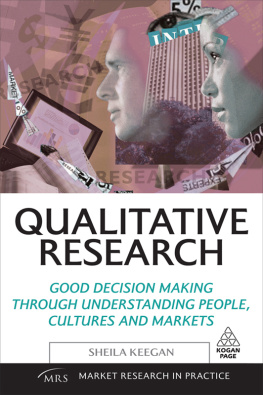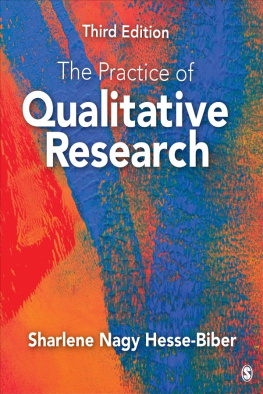SAGE Publications Ltd
1 Olivers Yard
55 City Road
London EC1Y 1SP
SAGE Publications Inc.
2455 Teller Road
Thousand Oaks, California 91320
SAGE Publications India Pvt Ltd
B 1/I 1 Mohan Cooperative Industrial Area
Mathura Road
New Delhi 110 044
SAGE Publications Asia-Pacific Pte Ltd
3 Church Street
#10-04 Samsung Hub
Singapore 049483
Tomas Pernecky 2016
First published 2016
Apart from any fair dealing for the purposes of research or private study, or criticism or review, as permitted under the Copyright, Designs and Patents Act, 1988, this publication may be reproduced, stored or transmitted in any form, or by any means, only with the prior permission in writing of the publishers, or in the case of reprographic reproduction, in accordance with the terms of licences issued by the Copyright Licensing Agency. Enquiries concerning reproduction outside those terms should be sent to the publishers.
Library of Congress Control Number: 2015960280
British Library Cataloguing in Publication data
A catalogue record for this book is available from the British Library
ISBN 978-1-4462-8238-0
ISBN 978-1-4462-8239-7 (pbk)
Editor: Jai Seaman
Editorial assistant: Alysha Owen
Production editor: Tom Bedford
Copyeditor: Audrey Scriven
Indexer: Cathy Heath
Marketing manager: Sally Ransom
Cover design: Shaun Mercier
Typeset by: C&M Digitals (P) Ltd, Chennai, India
Printed in India at Replika Press Pvt Ltd
Preface
Human beings make sense of the external world through experience and cognition. Common sense recognition would suggest that knowledge, then, is fundamentally the result of our physiological make-up and our cognitive processes. To make this concession is to enter an arena of philosophical problems which have occupied many an intellectual mind. While some have argued that by means of the scientific method it is possible to obtain accurate descriptions of reality, others have advocated that the only thing we can truly know is our ideas. Still others have accepted truth claims that solely pertain to the observable aspects of reality, while others still have rejected the possibility of knowledge altogether. In the quest to account for reality and gain knowledge of it, a number of distinct schools of thought have flourished. This book seeks to provide an accessible overview of the developments in the prevailing philosophical doctrines, and supply the reader with a deeper understanding of the key arguments.
There is an increasing demand on students to possess sound knowledge of various theoretical perspectives and to demonstrate the ability to apply these to research. However, attending to matters of metaphysics and epistemology is undoubtedly one of the most vexing tasks a researcher faces. In the pursuit of carefully articulating a philosophical stance, one has to make sense of legacies spanning the course of centuries in a very short period of time, grapple with intricate vocabularies, and digest complex ideas. Many arrive at this juncture without any philosophical background, unequipped to deal with this formidable task. The subtler ambition of this text, therefore, is to bring out the philosopher in the qualitative inquirer by examining a variety of topics that have been pivotal in the philosophy of science.
Several important tenets underpin this project. The first has to do with the notion that there is a better or an accurate way of doing qualitative research. To claim methodological superiority is in itself a manifestation of philosophical assumptions of a certain kind. The vantage point adopted in the pages that follow views qualitative inquiry as characterized by different research aims, philosophical assumptions, varying levels of usefulness, and a range of attitudinal factors including claims to truth. It does not seek to advance any particular school of thought on qualitative research. This point ought to be raised upfront as some readers may be enmeshed in the traditions of specific communities of qualitative practice. Secondly, this book is not a book about paradigms. Quite the contrary, it is argued that paradigms, as they have been construed in the literature, represent a rigid conceptual organization of ideas, and as such are limited in capturing philosophical diversity. The third tenet arises out of the first two as an appeal to building an environment that nurtures academic freedom, creativity, and the expression of a range of philosophical and methodological choices. Taken together, these three undercurrents crystalize in the final chapter in the form of an invitation to contemplate a post-paradigmatic approach to research.
The central thesis of this text is the claim that philosophy develops across multiple continua, whereby ideas may not only be of a similar (or similar enough) sort, but also diverge and occupy different planes. It is inadequate to speak of one realism, empiricism, rationalism, and idealism univocally; rather, there is a multiplicity of perspectives, and these have evolved and spilled over into other territories to give rise to modified outlooks. Consequently, it would be misleading to suggest that all constructionists, for example, are anti-realists through and through, that all researchers drawn to hermeneutics and phenomenology are anti-objectivists, and that all idealism goes hand in hand with subjectivism. Dichotomies of this breed no longer serve the qualitative researcher of today, who is called to navigate increasingly challenging and heterogeneous philosophical terrains.
The volume is divided into four parts and eight chapters. ).
The third part of the book, titled Intangible Realities, addresses some of the neglected domains of qualitative research. ventures into the territory of quantum mechanics and outlines nine theories about quantum reality. It is argued that if we are to speak of reality with some degree of relevance in the twenty-first century, then attending to the philosophical problems entwined with the quantum world has an important place in the discourse.
Finally, the reader should be aware that this is not a complete philosophy of science, only a selection of the most pressing concerns for qualitative researchers. While the chapters are compiled to offer a general understanding of the key epistemological stances and metaphysical problems, the volume is not intended as an exhaustive resource. Instead, each chapter includes a list of recommended literature for furthering ones knowledge on the subject. It is also important to emphasize here that this is not a methodological text: its focus rests with metaphysical and epistemological questions, such as what there is and what can be known about it. Although the content is organized as a whole, each chapter can also be used independently as a focused resource. Regardless of their philosophical orientation and choice of methods,







